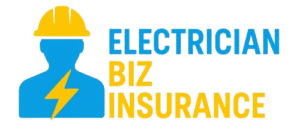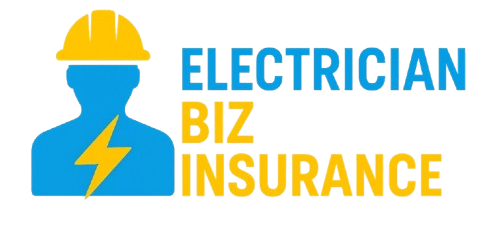What Insurance Does an Electrician Need?

What Insurance Does an Electrician Need?

Electricians face daily hazards, from electrical fires and tool-related injuries to property damage and client lawsuits. That’s why one of the most important questions professionals ask is: what insurance does an electrician need? Whether you’re a solo contractor, a journeyman, or running an electrical firm, insurance isn’t just a safety net—it’s a must-have to protect your reputation, your livelihood, and your future.
Insurance isn’t just a box to check for licensing or contracts; it’s the foundation of a responsible and secure electrical business. Clients often expect to hire a licensed and insured electrician, and local laws or job sites may require specific policies before you can even begin working. Let’s break down the essential coverage types every electrician should have, and how they fit into your risk management strategy.
General Liability Insurance: The Core of Electrician Coverage
Electrician liability insurance is the most fundamental policy you’ll need. It protects against third-party claims for bodily injury or property damage. For example, if a client trips over your cords or you accidentally damage a wall while installing wiring, this policy covers legal fees, settlements, or medical bills.
This is the most commonly required insurance across the USA—especially for licensed electricians in places like California, Texas, Massachusetts, and Florida. Whether you’re a self-employed electrician or part of a larger team, electrician general liability insurance is the first step in being protected and credible.
Workers’ Compensation Insurance: Mandatory if You Have Employees
In most states, including California, electrician workers compensation insurance is required by law if you employ even one person. This policy covers injuries or illnesses your employees may suffer while on the job—from electric shocks to ladder falls.
Even if you’re a sole proprietor, some clients or commercial projects may still demand proof of workers’ comp to award you the job. Having this policy ensures both compliance and peace of mind.
If you’re based in California or looking to expand into that market, visit Western Insurance’s Electrician Insurance California for customized guidance on required electrician coverage in the state.
Professional Liability Insurance: For Design and Consulting Risks
Also called electrician E&O insurance, this coverage protects you if a client claims financial loss due to your error, omission, or oversight in design, advice, or installation. It’s essential for master electricians, electrical consultants, and those working on complex systems where small mistakes can lead to big costs.
For example, if you design a commercial lighting system that fails and causes business downtime, electrician professional liability insurance covers legal expenses and damages.
Tools and Equipment Insurance: Protect Your Gear
Your tools are your livelihood. That’s why electrician tool insurance (or electrician equipment insurance) is vital. It covers stolen, lost, or damaged tools, whether they’re in your van, at a jobsite, or in storage.
Policies can be customized based on your inventory and usage. This is especially useful for auto electricians and mobile electricians constantly on the move with expensive tools in their vehicles.
Commercial Auto Insurance: Required for Work Vehicles
If you drive a work van or truck, personal auto insurance won’t cover job-related accidents. You’ll need electrician business auto insurance, which includes coverage for property damage, medical expenses, and liability claims while operating your work vehicle.
This is legally required in most states and commonly bundled into a Business Owner’s Policy (BOP) for electrician companies.
Umbrella Insurance and Custom Add-Ons
For large electrical firms or high-risk projects, electrical company umbrella insurance offers an extra layer of protection above your general liability or auto policies. You can also add endorsements like cyber liability, inventory theft, or jobsite vandalism.
If you’re unsure what to include, Western Insurance provides access to specialized electrician insurance brokers who can help you customize your electrician insurance based on business size, project scope, and location.
Specialty Coverage for Self-Employed Electricians
If you’re a self-employed electrician, you’ll likely need:
General Liability Insurance
Tool and Equipment Coverage
Optional: Workers’ Comp if hiring subcontractors
Optional: Professional Liability if you do design work
Luckily, there are flexible policies available like daily electrician insurance, monthly electrician liability insurance, or even one-day electrician insurance—ideal for short-term gigs or subcontracting jobs.
Final Thoughts: Be Fully Covered, Not Just Licensed
So, what insurance does an electrician need? At a minimum: general liability. But in reality, proper coverage includes workers’ comp, tools, professional liability, commercial auto, and other options tailored to your unique work.
In today’s competitive market, being a licensed and insured electrician isn’t enough—you need to show you’ve thought about every possible risk and are prepared. From Los Angeles to New Hampshire, having the right electrician insurance ensures you can work confidently, win bigger contracts, and grow your business without fear.
For tailored plans, quotes, and expert advice, explore Western Insurance’s electrician coverage solutions today

